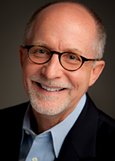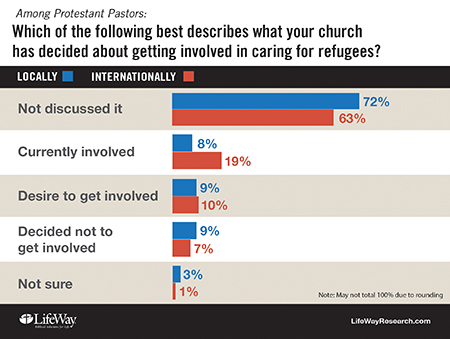Editorial: Fear, politics, refugees and God’s love
A new survey on Protestant Christians’ attitude toward refugees illustrates why fear-mongering presidential candidates are doing so well this year. God, save us from ourselves.
 Marv KnoxChurches are twice as likely to fear refugees as to help them, 1,000 Protestant pastors nationwide told LifeWay Research, the polling arm of the Southern Baptist Convention’s LifeWay Christian Resources.
Marv KnoxChurches are twice as likely to fear refugees as to help them, 1,000 Protestant pastors nationwide told LifeWay Research, the polling arm of the Southern Baptist Convention’s LifeWay Christian Resources.
No wonder some of the most successful presidential candidates in this cycle exploit voters’ disdain for global citizens unsettled by war, terrorism, persecution, and the tyrannical abuse of poverty and hunger for political purposes.
Worldwide, 20 million people are refugees, reports World Relief, which joined World Vision in commissioning the survey. Their numbers include 4 million Syrians. The United States is expected to resettle 85,000 refugees, including 10,000 from Syria, this year.
Pastors support refugees …
For their part, pastors strongly favor helping refugees, the LifeWay Research survey discovered:
• 86 percent believe Christians have a mandate to “care sacrificially for refugees and foreigners.”
• 80 percent think caring for refugees is a privilege.
• 67 percent feel the United States can balance national security interests with compassion when assisting refugees.
 Churches, not so much
Churches, not so much
But their follow-through, as well as their congregations’ attitudes, don’t align with the pastors’ professed convictions:
• 19 percent of U.S. Protestant churches are helping refugees overseas, the survey found.
• 35 percent of pastors have mentioned the Syrian refugee crisis from the pulpit.
• 44 percent believe their church members fear refugees coming to the United States.
• 9 percent of churches have decided not to help refugees locally.
• 7 percent have decided not to help them oversees.
• Churches are more than twice as likely to help refugees overseas (19 percent) as locally (8 percent).
• Pastoral endorsement for refugee support (86 percent) out-paces actual congregational support for refugees (19 percent) by more than four to one.
• Although few actually do it, churches are almost four times as likely to give money to relief organizations or pray for refugees (19 percent) as sponsor refugees (5 percent).
• Baptists (56 percent) lead the denominations in congregational fear of refugees, according to their pastors. They’re followed by Pentecostals (50 percent), Lutherans (33 percent) and Presbyterians (29 percent).
“It’s encouraging to see the American church understands God’s call to serve and care for refugees and foreigners, but what’s needed now is action,” Richard Stearns, president of World Vision, told LifeWay Research. “This is a test of the relevance of the church in our world.”
Fear and the ballot box
The consequence of Christians’ fear multiplies when it influences elections and public policy.
Individual congregations’ failure to help the world’s least fortunate is bad enough. But when their fear propels them to empower politicians to say the United States will not render aid, the crisis compounds. The candidates who prey on fear of others also are the candidates, according to surveys, who are doing the best among evangelicals.
The candidates look no further than election day. They’re going to conduct their polls and say what they think will bring them the most votes. But how can Christians claim to take the Bible and Jesus seriously and fail to factor Jesus’ teachings in Luke 4:14-30 and Matthew 25:31-46 into their political calculations?
Many voters—especially this year—are expressing frustration with their presidential options. So, they trade off one set of political positions for another, hold their noses and vote. But Jesus cared most for the most vulnerable, and in our world, that is refugees. All of us must take that seriously, in what we do as congregations and in how we vote.
The wages of fear
Besides care for the poor and the powerless, the New Testament teaches us to exercise the courage that springs from God through faith. “There is no fear in love. But perfect love drives out fear, because fear has to do with punishment. The one who fears is not made perfect in love” (1 John 4:18). “For the Spirit God gave us does not make us timid, but gives us power, love and discipline” (2 Timothy 1:7).
Fear is idolatry; it places the priority of security over love for God and trust in God’s love. Fear is the opposite of faith. Fear undoes love. Fear leads away from God.